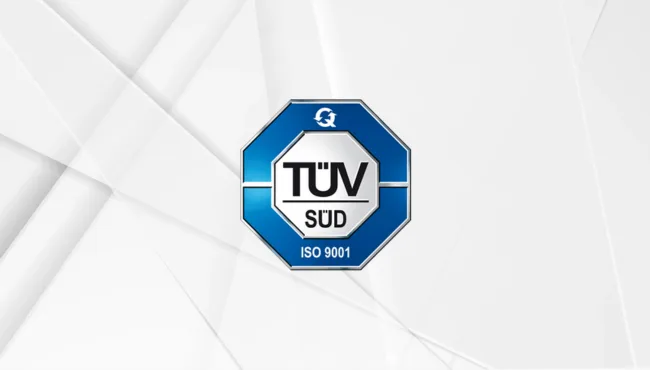
Whether you are new to IT outsourcing or have successfully completed several small engagements, you probably know this: good team composition is key.
However, in the haste of meticulously choosing the right software development talent for your team, a lot of business owners forget that supporting managerial roles also matter a lot. At the end of the day, someone will need to guide and steer those people towards your end-goal. So the question is: who should it be?
Scrum Master vs Product Owner vs Project Manager – whom should you pick and why? Let’s unravel this together.
Product Owner: Role and Responsibilities
Let’s start with a quick general definition of a Product Owner:
A Product Owner communicates the project deliverables to the development team and is responsible for maximizing the end-value of the product for the users.
In essence, Product Owners act as a “proxy”. They represent the business interests and formalize the product vision, while also proactively informing the development team on what needs to be done and how. Their decisions are driven by the business needs and their main goal is to maintain a strong alignment between those formalized needs and actual project deliverables.
Product Owner Scope of Responsibility:
A very simple example would be ensuring that the team prioritizes the development of a new data storage layer for the app, over redesigning one of the key interfaces since the former is more business-critical at this point.
Product Owners also report on the progress to other stakeholders and are responsible for conveying any changes in the product strategy to the dev team.
While many combinations are possible, one of the best options is to have a Product Owner at your end plus a proxy on the vendor’s side. In this case, you have double-insurance that your product is fully understood and the core features are developed at the right sequence.
Typical Product Owner Responsibilities
- Develops overall product vision together with other stakeholders (e.g. customer, governance, and organizational leadership)
- Provides a product roadmap that summarizes the general direction of what you are building.
- Supports and educates the development team on the product value, vision, and purpose. Ensures that everyone has a coherent understanding of what the product is meant to do.
- Drives stakeholder engagement to minimize inconsistencies and conflict in the overall product vision that can hamper the development timeline.
Under the Agile methodology, a Product Owner with a technical background can also take on the following set of responsibilities:
- Product backlog management and prioritization
- Project scope management
- Release management
- Unblocking Software Developers by re-prioritizing backlog items.
Ultimately, Product Owner responsibilities can change drastically depending on the project type, outsourcing IT model and overall organizational maturity of the client/vendor.
Product Owner In-Demand Skills
To successfully perform their core responsibilities, Product Owners need the following skills:
- Knowledge of key software development concepts (SDLC, product development architecture, backlog management, etc.)
- A thorough understanding of Agile methodology
- Problem-solving and decision-making skills
- Communication and negotiation strategies
- Project management techniques and tools
- Time management skills
- Market and industry acumen
Benefits of Having Product Owners On Your Team
- Better alignment between project stakeholders and your delivery team (especially in outsourcing partnerships)
- Feedback-driven product requirements refinement
- Optimized, iterative product development process
- Enhanced work environment and team morale
- Faster response to changes of stakeholders’ (and users’) needs
Project Manager Role and Responsibilities
The Project Management Institute provides an excellent definition of a Project Manager (PM):
“Project Manager is the person assigned by the performing organization to lead the team that is responsible for achieving the project objectives”.
Project Managers also strongly adopt the project goals and use different techniques to guide the development team under their command towards the successful accomplishment of these. Just like Product Owners, their main goal is to drive business results by breaking down the “big picture” into small daily work chunks and gearing up the resources towards these.
Project Manager Scope of Responsibility:
A great Project Manager can ramp up the team and maximize the delivery pace, while proactively mitigating any potential risks and resolving potential bottlenecks. They are also great communicators and maintain an ongoing rapport both with the project’s stakeholders and the project team members.
Project Managers vs Other Roles
- Program vs Project Manager: A Program Manager is accountable for multiple projects at a time, gathered into a larger program. They may have several Project Managers under their command.
- Product Owner vs Project Manager: These two roles are more closely knit and oftentimes interchange one another. Though, in an ideal setting, a Product Owner holds more responsibilities around the product vision and strategy (aka they formalize the project objectives). While a PM performs more hands-on duties related to timeline planning, resource allocation, cost management and progress reporting (leads the team towards the stated objective).
Typical Project Manager Responsibilities
- Project setup and planning: PMs create project timelines, set key milestones/sprints, clarify the requirements, and set the deadlines for key deliverables. PMs are also responsible for SDLC setup – from scratch or one that mirrors the client’s setup.
- Resources allocation and cost management to ensure that the project remains within the allocated budget.
- Backlog management is another core responsibility. PMs focus on work allocation and work estimates. Their goal is to minimize bottlenecks and ensure smooth execution of all assigned tasks.
- Accommodates change and request management whenever the need arises and re-allocates resources to meet these.
- Monitors performance, KPIs, and timelines to ensure high project health and spot the onset of a problem early on.
- Progress/status reporting to the key stakeholders.
By no means this list of project management responsibilities is exhaustive. This role is fluid too and can change depending on the used project management methodology, the company’s org structure, and project type.
Project Manager In-Demand Skills
To accomplish the above tasks and boost the performance of the team, Project Managers must have the following competencies:
- Time management and project planning
- Knowledge of PM software/tools
- Team performance monitoring
- Project roadmap development
- Task & workload management
- Dependency management
- Knowledge of Agile principles
Why the Role of Project Managers is Crucial for IT Projects?
A Project Manager is directly responsible for ensuring that your project progresses in the way you intend. They are the backbone of your team, facilitating task execution, workflow management, and team alignment to the project’s objectives.
Without a project management role, you risk ending up with a development process that lacks strategic alignment and realistic timelines. When there are no designated Project Managers on a project, other team members may step in to take the leadership role. This might be fine for very small projects but is not a good practice generally.
Scrum Master Role and Responsibilities
Scrum.org offers a succinct definition:
“Scrum Master is responsible for promoting and supporting Scrum. Scrum Masters do this by helping everyone understand Scrum theory, practices, rules, and values”
For those new to the Agile methodology, here’s a quick refresher on what is Scrum. In short, Scrum is a framework for managing software development. It’s based around the key agile principles of early, frequent and continuous delivery, technical excellence and high team motivation.
The goal of Scrum is to help software development teams naturally adapt to changing user requirements and other conditions and shorten release cycles so that it can continuously learn, improve and ship better code.
Scrum Master Scope of Responsibility:
A Scrum Master, in turn, acts as a facilitator who constantly coaches the team and helps it gain its maximum productivity. It’s a highly supportive role that assumes close communication with the development team and the Product Owner/Manager.
Typically, the Scrum Master promotes and fine-tunes the adherence to the four core Scrum events illustrated above:
- Sprint Planning
- Daily Scrum
- Sprint Review
- Sprint Retrospective
In essence, the Scrum Master goal is to facilitate the adoption of agile practices and proactively ensure that the development team faces few-to-none blockers, is highly effective and works towards the stated project goal.
Typical Scrum Master Responsibilities
- Maintains strong alignment and ensures that everyone on the team understands the product domain, project goals, scope, and general requirements.
- Assists with product backlog management. Helps the Product Owner arrange and prioritize the product backlog to maximize value.
- Facilitates Scrum events on an as-needed basis to ensure higher engagement.
- Removes impediments for Software Developers to increase their progress.
- Otherwise, coaches, mediates, and counsels on product backlog management and overall product planning.
- Monitors team’s progress using agile metrics (spring burndown, velocity, cycle time) and writes reports about results after each iteration.
- Serves as a buffer between PM/management and delivery teams.
Scrum Masters perform a dual-service role both to the development team and the business as they attempt to minimize any project roadblocks and proactively work on increasing the team’s performance and effectiveness.
A Scrum Master is nice-to-have in many cases. However, this role can be taken over by an experienced Agile Project Manager or an Agile Product Owner who also possess Scrum skills.
Scrum Master In-Demand Skills
For Scrum Masters, having the following competencies is essential:
- In-depth knowledge of agile principles and tools (Jira)
- Basic understanding of IT systems and architectures
- Strong negotiation and communication skills
- Conflict management & resolution skills
- Coaching and mentorship abilities
Benefits of Having a Scrum Master On Your Team
- Faster adoption of Scrum practices
- Efficient and structured meetings
- Speedy issue resolution
- Improved alignment between team members
- Streamlined onboarding of new team members
- Lower workload for Project Managers and Product Owners
Product Owner vs Project Manager vs Scrum Master: Quick Comparison Table
| Product Owner | Project Manager | Scrum Master |
| Responsible for the product vision & strategy | Responsible for project planning & oversight | Responsible for team agility, effectiveness, and productivity. |
| Performs product backlog management and prioritization | Manages timelines, resources, budgets, scope and related risks | Supports, facilitates and mediates different aspects of the development process. |
| Drives stakeholder engagement | Monitors and reports on the team performance | Facilitates product backlog management, removes blockers. |
| Acts as a bridge between the business & development | Acts as a key communication point between the biz & dev | Leans more to the development team (is part of the dev team) |
Product Owner vs Project Manager vs Scrum Master: Which Role Do You Need For Your Project?
Well, the short answer is – it depends. Every role on this list can hedge your outsourcing project risks as they help build a stronger communication bridge between you (as a business) and the development team and promote knowledge sharing and collaboration.
On the other hand, for one reason or another, you may not be able to secure every role for your project. And that’s not the end of the world either since you can execute a successful project with a good number of other org structure combos.
Based on our extensive experience in software development, we typically recommend our clients to have the following roles in their outsourcing project:
- Dedicated Team – having a manager at the vendor-side is highly beneficial. After all, you need someone to handle team processes, perform reporting and assist with alignment. The managerial role can be filled in by a Product Owner or Project Manager.
- Fixed-price Project – a vendor must have a Project Manager at their end (you should be wary if there’s none!). Having this role will minimize the risks of missed deadlines, overblown budgets, and other mishaps. A vendor-side PM, in this case, can bring significant ROI as they can save you more money through proactively mitigating project risks.
- Staff Augmentation – Again, you need to have someone responsible for organizing the team’s inner working and ensuring their productivity and efficiency. Doing so remotely is not always feasible. Thus, it’s best to have a Scrum Master present vendor-side to facilitate all the interactions between you and the team. Plus, you may also benefit from a technical team lead or a Project Manager to handle the day-to-day backlog management and planning.
Need further help with selecting the right team composition and outsourcing service model? Let’s have a quick chat!






